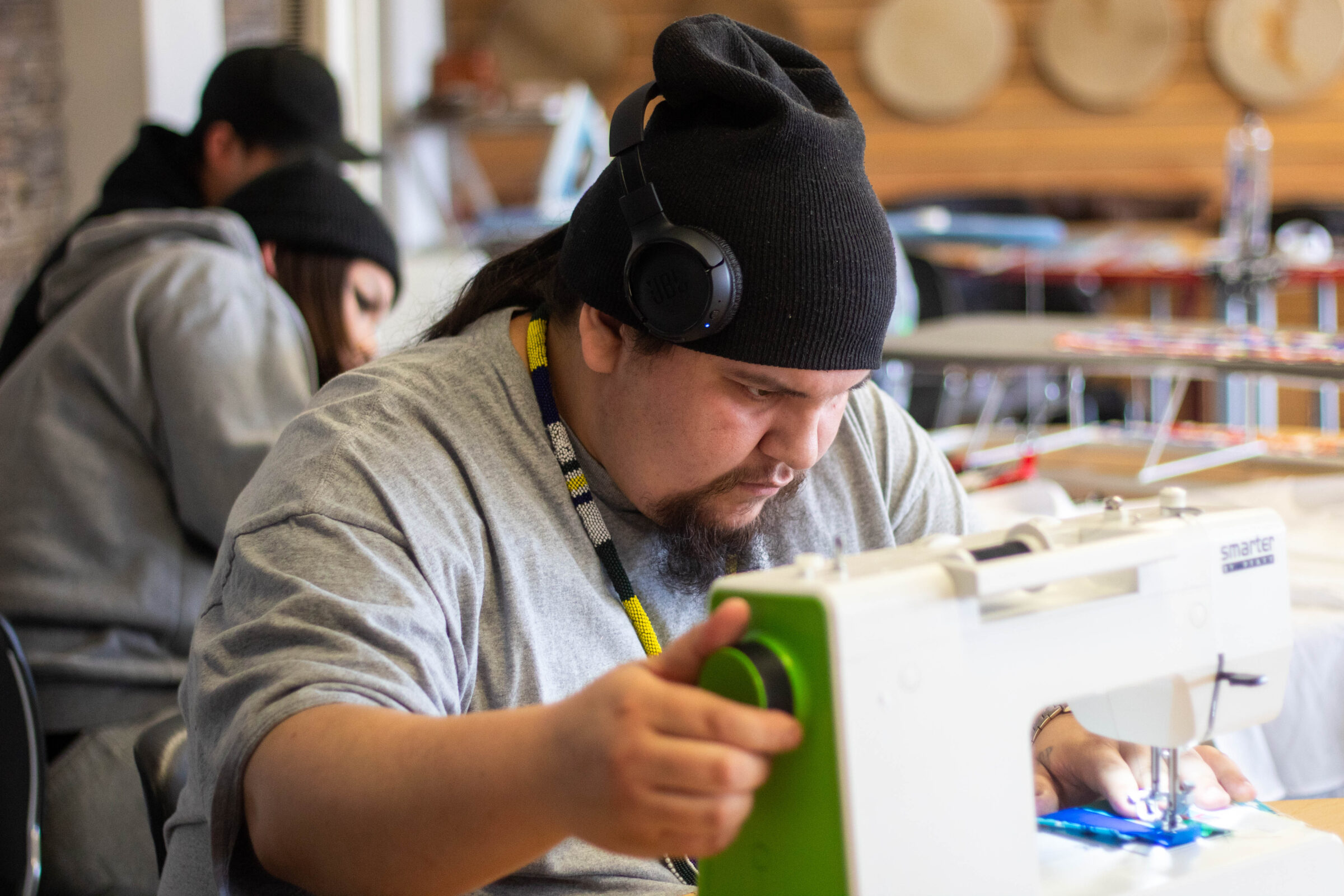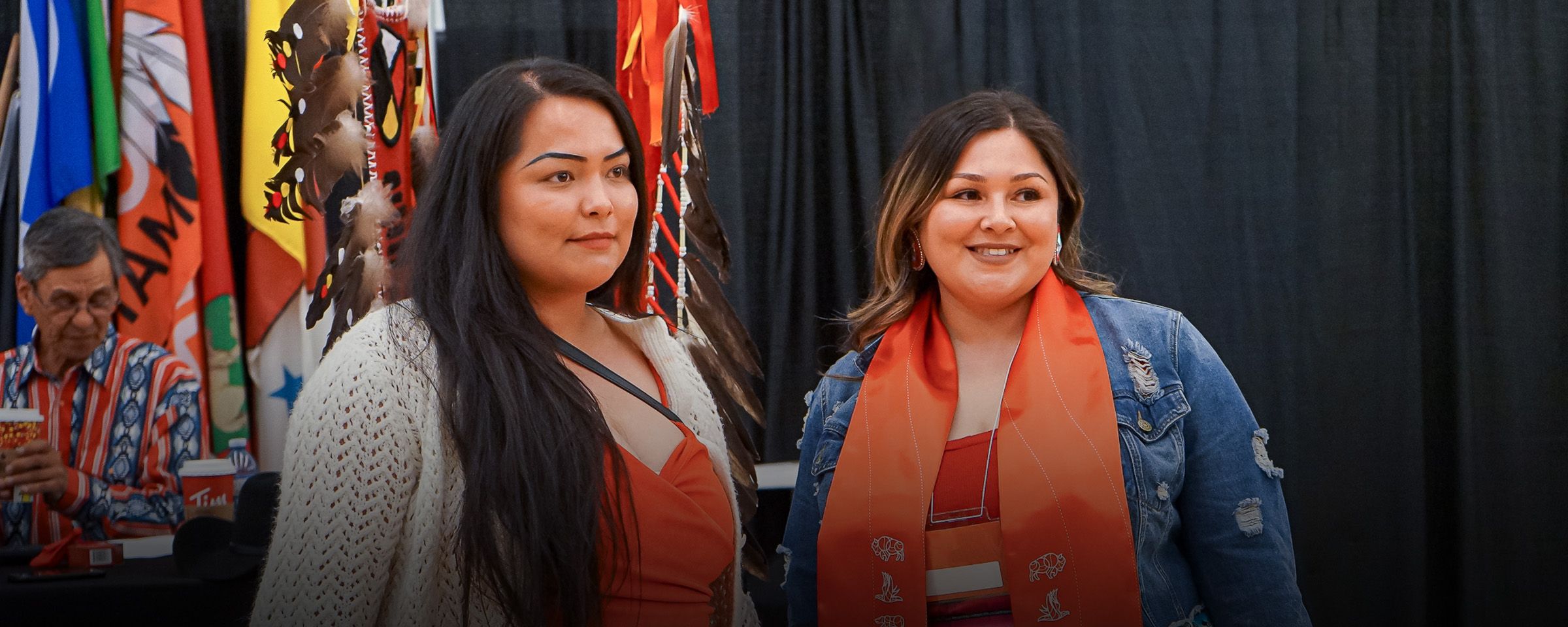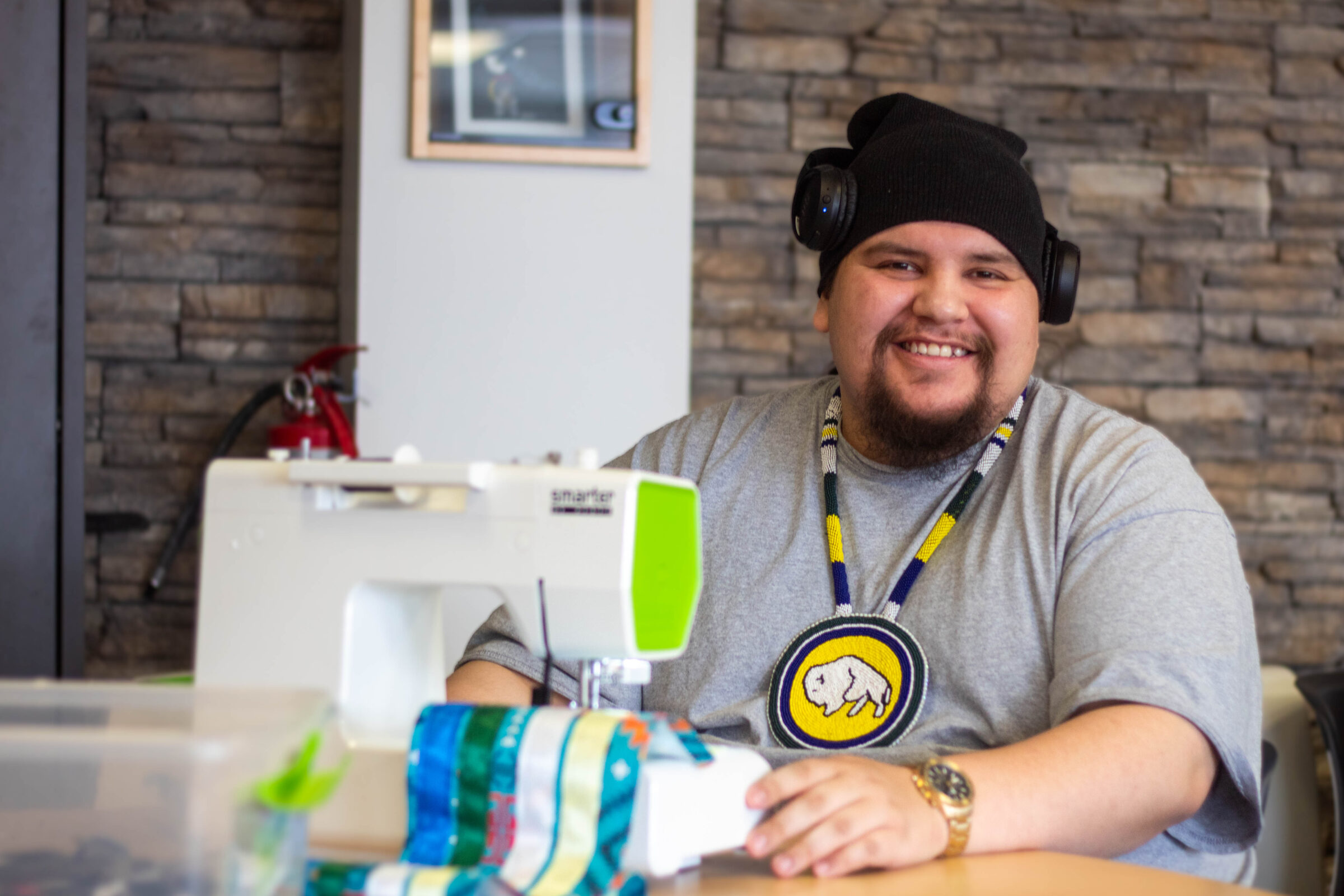Culture and College Transition
Matthew Paul sewed his third ribbon shirt with his peers in the Indigenous Support Centre as part of the course curriculum in College Transition. Being able to immerse himself in his culture has been essential in his educational journey, and he says he’s looking forward to graduating from his first post-secondary program this spring.
A few years ago, Paul was encouraging his daughter Joanna to graduate from school after he noticed that she was struggling to find motivation to complete assignments and participate in class.
Joanna responded with: “Why? You didn’t graduate. So, why should I?”
Her question had a resounding impact on Paul, and he realized that he needed to set an example for his daughter if he truly wanted to encourage her to pursue education. He enrolled at Urban Circle to obtain his grade 12 credentials, and the emphasis on Indigenous wellness and ways helped him to engage with the coursework far better than he could when he was in public school.
After he graduated, he could finally answer her question:
“Look – if I can do it, you can do it, too.”
That same year, Paul intended to continue his education through post-secondary. However, he encountered issues with his funding which delayed his launch into college for a year, and again was delayed the following year when the COVID-19 pandemic struck.
In fall 2024, Paul was finally able to enter College Transition to help him get accustomed to a post-secondary learning environment.
At first, he was scared. He was intimidated coming into a learning environment as a mature student when many of his peers were in their early twenties and still learning how to navigate the world as adults.

Now, he’s in the Indigenous Support Centre at Notre Dame Campus almost every day, chatting with students and staff. He feels confident in cracking the first joke with somebody, breaking the ice with new people – Paul says a lot of younger people he meets in the centre are shy, and he feels responsible for helping them feel more comfortable and helping them learn that it’s okay to laugh, joke and talk.
Now that he’s a high school graduate and a current college student, Paul says he’s proud to see Joanna still working hard in her own high school. The encouragement he gives her now is the same encouragement he learned himself: for him, it’s not about getting the best grades.
“Sometimes, you only get 50 per cent but as long as you tried, that’s what matters. Sometimes something won’t click right then and there, but you learn to figure it out. If you try your hardest and you still fail, well – that’s just life. With failure comes greater achievements in life later,” said Paul.
Prior to his return to school, Paul was living on assistance to support himself as a single parent caring for his daughter. He says it was a hard cycle to get out of because of the caveats that come with using social assistance programs.
“If you’re in school or you make any income, you get cut off, even though you might need that little extra support,” said Paul.
Paul says that College Transition helped him find the confidence he has in himself now, and he can identify his strengths and celebrate his own accomplishments.
“Before I came here, it felt so weird being able to say something good about myself. I always got told, ‘you can do it,’ and ‘why are you stopping yourself?’. It was like there was another me stopping myself,” said Paul.
Paul says that after College Transition, he’s considering the Pathway to Business, Creative Communications and Digital Technology Programs to learn how to run a business.
For a long time, Paul wanted to help others through his work, but wasn’t sure what that might look like. He says that he can see himself pursuing solutions to food shortages and the costs of groceries in northern communities.
Now that Paul’s a student again, he is not only encouraging his daughter to pursue education, but others that might be considering returning to school as well.
“Just do it – I was so scared to come here at first, but there was no reason to be. I grew from that. No matter how old you are, you still have a lot to learn,” said Paul.

